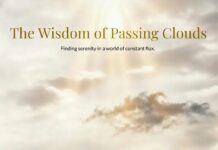The Delusional Series
Compiled according to the teachings of the Master
Author: Fafu
The Delusional Series: Part 12 –39 Ignorance 3
A human being’s growth from infancy is analogous. If one truly understands the nature of illusions, one can guide the development of a newborn’s consciousness from its inception. Just as a watermelon grown in a square glass box will eventually take on a square shape, so too can one shape their consciousness. Thus, the depth of one’s understanding of illusions determines their ability to guide and shape their experiences. To have a complete understanding is to be enlightened. Any lack of understanding is ignorance. To claim enlightenment while still harboring ignorance is the epitome of ignorance.
Moreover, when one is afflicted by sloth and torpor, and burdened by afflictions, one may develop a sense of superiority, thinking, “What’s so great about overcoming these? Even a farmer can do it.” This is a grave error. If one truly believes they can overcome these obstacles, they should put their beliefs to the test. Remember, sloth and torpor often lead to underestimation. Underestimating any aspect of one’s practice is a sure path to failure. Even a slight delay in one area can lead to a complete breakdown.
As long as something is in a state of flux, it is merely a phenomenon arising from the process of change and is thus illusory. The belief in the inherent reality of such phenomena is a conditioned concept, instilled in us from a young age. It is similar to the Sichuan people’s love for spicy food, a taste acquired through conditioning. Even those who were not initially accustomed to such flavors can develop a taste for them through conditioning. Likewise, we can be conditioned to understand the illusory nature of existence. By constantly immersing oneself in the teachings of the Buddha, one can establish a firm foundation in Buddhist wisdom. The question is whether one is truly engaged in this practice, or whether one is still chasing after dreams and delusions. These afflictions are like clouds and dreams. When one is dreaming, they never doubt the reality of their experiences. They firmly believe in the dream as if it were real. Within the dream, one may experience intense anger, hatred, love, or beauty, but upon waking, one realizes that these experiences were merely illusions. As Yongjia Master said, “Though in dreams there are six paths, upon awakening, the great thousand worlds are empty.”
Understanding the nature of illusion is not difficult. Simply recall all your dreams in detail, especially those that seemed so real and vivid. Why did you never doubt their reality at the time? It’s because you believed in the reality of the people and events within those dreams. Therefore, while dreaming, you were absolutely convinced of its reality. Given this experience of dreams, you should understand that they are illusory and do not exist. Yet, while in a dream, you firmly believe in its existence. Thus, our waking experience and dreams are both illusions, but of different kinds. The waking state is often referred to as a “daydream,” while sleep is a more obvious form of dreaming. Both are dreams, and this is not difficult to understand, for all phenomena are impermanent and changing.





